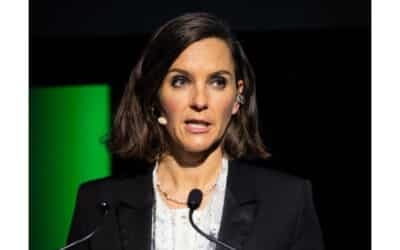Channel 4 has outlined what it’s calling a “twin-track approach” to invest in IP ownership, but it’s been slammed by industry body Pact.
The broadcaster is planning a phased move to in-house production and the launch of a new Creative Investment Fund (building on the existing Indie Growth Fund).
It said that the plan was to build majority stakes in indies and “gradually develop focused in-house production capabilities.”
At the same time it would be committing to an increased indie quota from 25% to 35%.
The background to this is the Media Act, which has removed Channel 4’s publisher broadcaster restriction and the creation of a new sustainability duty. Up until now Channel 4 was unable to make its own content and build Intellectual Property, instead relying entirely on production companies.
This, Channel 4 argued, meant that it was like a “canary down the mine” because whenever the economy dipped and advertising revenue fell it was hit first and had no other income to fall back on.
READ MORE – Broadcasting and commissioning: advertising dip or trouble on the horizon?
The broadcaster stated that this “diversification of revenues” was “an essential step in supporting its role as a sustainable champion for independent production.”
Adding that it would enable longer-term content investment with indies “of all shapes and sizes and in every part of the UK.”
“The plans we are announcing today are the centrepiece of our strategy to diversify revenues and secure Channel 4’s long-term sustainability. The creation of in-house production and our investment in indie stakes will allow us to generate new income streams that are not wholly reliant on the advertising market,” said Alex Mahon, CEO, and Jonathan Allan, COO and incoming Interim CEO, Channel 4.
“Indies will always be the lifeblood of Channel 4, and this new direction is an essential element of our strategy to underpin the long-term sustainability of Channel 4 for the benefit of the independent sector and British storytelling – where all roads lead back to investing in UK independent production.
“The potential for us to take majority stakes in independent production companies is hugely exciting for the industry – the Indie Growth Fund has played a central role in the scaling of numerous indies since its launch and this strategy heralds a new era and greater ambition for the fund.
“[…] This new activity will also enable our commitment to growing Channel 4’s impact across the UK, providing investment capital, creating new production opportunities and opening further avenues for our 4Skills strategy.
“The developments – as part of our Fast Forward strategy – reaffirm Channel 4’s unique position in the UK production ecosystem and our unrivalled role as a champion of British creativity.”
It has published new Commissioning Guidelines which set out the high-level principles which will underpin any new production activity to ensure operational separation from commissioning and a level playing field for producers.
This will be accompanied by a new annual Statement of Commissioning Policy to be published later in the year.
Ofcom will oversee this new framework and will consult on their guidance over the coming months.
READ MORE – “Ofcom is looking to throw indies under the bus.”
Channel 4 said it would gradually start to develop in-house production capabilities to create “returnable, scalable formats focused in factual entertainment, reality and entertainment genres with international potential.”
An in-house production operation will be set up as a separate company, with a “clear operational separation, reporting lines and management distinct from Channel 4 commissioning, processes to ensure fair competition for commissions, and will be accompanied by a new dedicated complaints process for producers.”
The new company will be able to pitch to Channel 4 and other media platforms, with production expected to start next year.
At the same time, it is launching the Creative Investment Fund, with a focus on building majority stakes in Indies and content producers with strong commercial potential.
This is described as an “evolution” of its Indie Growth Fund, which has invested in indies including Yeti, Five Mile Films and Adolescence’s Warp.
What will make this different is that instead of being an early-stage strategic partner for growth to the next level, it will look to take larger equity stakes in “scalable” companies, with a clear path to 100% ownership.
Screen body, Pact, said it was “bitterly disappointed” by the plans, which it believes will “directly impact market share in an already fragile market.”
“The intention to create a new in-house development team, funded from savings and efficiencies elsewhere begs the questions that after years of diminishing programme budgets why they were unable to make these efficiencies before,” it said in a statement.
“The spin that this will mean more money for indies in future is not borne out by any explicit plans as to how any dividends from the new Channel 4 Production will find their way to the Channel 4 programme budget. The Channel 4 Board of Directors should publish specific proposals to back up this claim.”
Pact added that it was “unacceptable” for Channel 4 to have both its in-house team and the existing Channel 4 Corporation in the same building.
“[There] will be no separation between commissioners and in-house, immediately leaving independent producers at a disadvantage. The guidelines governing these relationships will not be fit for purpose when a commissioner meets a member of the development team in the Channel 4 canteen queue.”
“Having fought very hard against the privatisation of Channel 4, this is a bitter pill to swallow for the indie sector,” said Pact CEO John McVay OBE.











